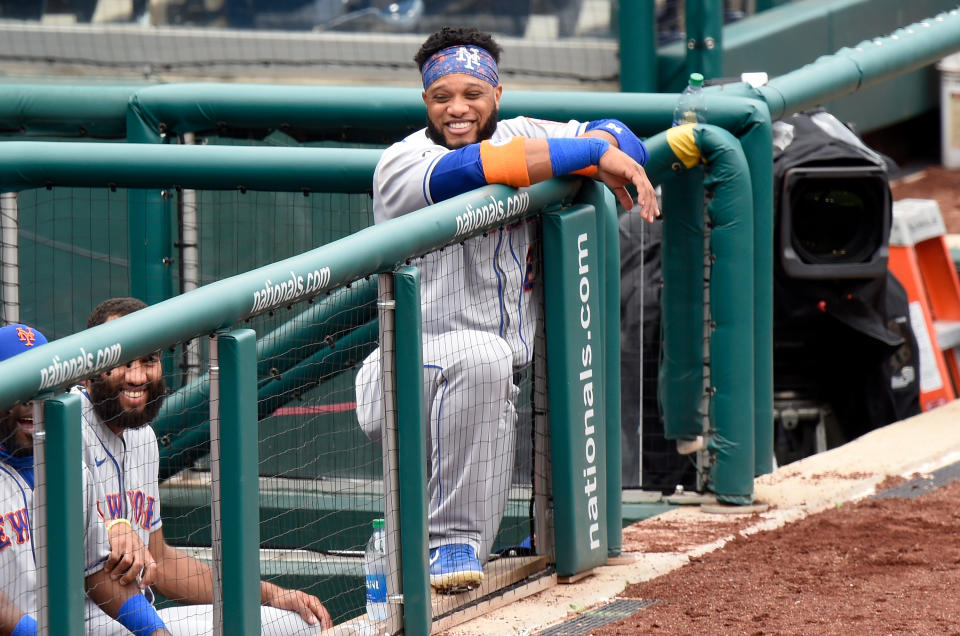Mets second baseman Robinson Cano tests positive for steroid, will be suspended 162 games

NEW YORK — Robinson Cano’s legacy was at stake, and he blew it.
The Mets second baseman tested positive for stanozolol and will be suspended for the entire 2021 season, Major League Baseball announced on Wednesday.
Stanozolol is a steroid and a violation of MLB’s performance-enhancing drug policy. This is the second time in Cano’s career that he’s run afoul of the policy; he was suspended 80 games in 2018 for testing positive for a diuretic. (Diuretics are banned under the PED rules because they can often mask PED use.)
The 162-game ban is the automatic length of a suspension for a second positive test.
“We were extremely disappointed to be informed about Robinson’s suspension,” Mets president Sandy Alderson said in a statement. “The violation is very unfortunate for him, the organization, our fans, and the sport. The Mets fully support MLB’s efforts toward eliminating performance enhancing substances from the game.”
Cano said in 2018 that a doctor in the Dominican Republic had prescribed him furosemide for a “medical ailment.”
Former Mets GM Brodie Van Wagenen acquired Cano in 2018, following the season during which he was suspended in Seattle. The trade brought Cano and Edwin Diaz to New York in exchange for a package headlined by Jay Bruce and star prospect Jarred Kelenic. Van Wagenen was previously Cano’s agent at CAA. Two years ago, Van Wagenen was quick to point out that he thought Cano did not use a steroid, saying: “I do think it’s important remembering Robbie was not suspended for a PED. He was suspended for a diuretic.”
“I don’t think he’s a drug cheat,” former Mets COO Jeff Wilpon said in Dec. 2018 after Cano’s introductory press conference at Citi Field. “I could be proven wrong, but I don’t think he’s a drug cheat.”
Cano struggled in his first season with the Mets, hitting .256/.307/.428 over 107 games and taking repeated trips to the injured list. Cano improved in the second half of 2019 before he completely bounced back in 2020, slashing .316/.352/.544 with 10 home runs and playing 49 out of 60 games.
At 38, Cano is one of the oldest active players in the majors. His full-season suspension will cost him his $24 million salary. But the 10-year, $240 million deal Cano signed with Seattle in 2014 goes through the 2023 season; the Mariners will pay a small percentage of that, and new Mets owner Steve Cohen is worth around $15 billion, so it would not have been too bad a hit for the Mets. Now they don’t have to pay that tab next season.
According to published reports, there was far less PED testing in baseball than normal this season because of the coronavirus pandemic. The league converted a Utah lab it normally uses for anti-doping testing into a testing lab for the virus.
It’s fair to wonder whether Cano used a performance-enhancing substance midway through his first year to turn his numbers around and play as many games as possible. The eight-time All-Star prided himself for staying healthy most of his 16-year career, and he led the league with 161 games in 2009. Notably in 2019, Cano sustained injuries immediately after he started getting hot at the plate. He also recovered from last year’s left hamstring strain quicker than his initial timeline suggested.
Regardless of when Cano’s alleged steroid-usage began, he can likely bid adieu to the narrow chance he had remaining of getting into Cooperstown. Many in the industry believed the two-time Gold Glove winner would still get enough Hall of Fame votes after his 2018 suspension largely because of his ability to consistently produce throughout his career.
Cano has 2,624 career hits and 334 career home runs. He appeared poised to reach the 3,000-hit milestone by age 40, and 400 homers wasn’t out of the question either. He had the numbers to make it into the Hall of Fame, which only makes his decision to throw away an already tarnished reputation that much more perplexing.
Mets manager Luis Rojas was unafraid to bench Cano in favor of younger, more agile legs in Andres Gimenez and Luis Guillorme during this past season. The Mets will have to pivot with long-term options as Cano completes his year-long suspension and beyond. In-house infielders include Jeff McNeil, Guillorme and Gimenez. But it will be interesting to see whether Cohen and Anderson’s front office fill that hole with free-agent options, like the Yankees’ DJ LeMahieu.
Even the Wilpon-era Mets would’ve had the opportunity to make a big splash after saving $24 million in 2021 on Cano’s contract, which represents the second-highest on the Mets behind Jacob deGrom’s. But Cohen’s deeper pockets combined with the money saved leads to greater possibilities for the Mets.
Though Cano’s steroid use is a sad and unfortunate development in the veteran second baseman’s career, it is in many ways a boon for the Mets. The club can focus on phasing Cano out of its long-term picture much sooner than his contract was set to expire in 2023.
———
©2020 New York Daily News
Visit New York Daily News at www.nydailynews.com
Distributed by Tribune Content Agency, LLC.

